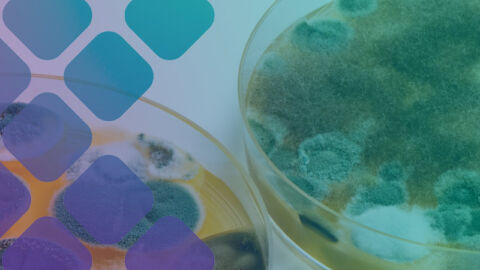Failure to provide adequate calcium to persons on the autistic spectrum is very dangerous and could lead to the loss of the eyes due to severe eye-poking behavior. This is an especially important topic because some individuals like Amy Yasko warns that calcium may cause overstimulation of neurons. Every element in our food and drink including water may cause death with excess intake but you will not find skull and cross-bone warnings on bottled water at the supermarket. The most relevant question is: How much calcium in the diet and in supplements is excessive?
Calcium deficiency can be a severe problem in normal children on a milk-free and dairy-free diet since milk is a significant source of protein, vitamin D, and calcium needed for strong bones and teeth. Some physicians have reported that rickets (1), a severe bone deformity, occurred in children with autism on the gluten and casein-free diet who did not receive added calcium supplements. Calcium and vitamin D supplementation is essential to children on a casein-free diet since most children with autism do not eat substantial amounts of other calcium-rich foods. Failure to provide adequate calcium to children on casein-free diets leads physicians to view such parents as negligent and ignorant and leads to skepticism about other nonstandard treatments for autism.
Children with autism may have an even more severe problem with calcium deficiency. Mary Coleman, M.D. (2) reported that children with autism who are calcium deficient are much more likely to poke out their eyes and a substantial number of children with autism have done so. I have talked to numerous parents of children with autism that began to touch their eyes after starting the casein-free diet. This abnormal behavior is associated with low urine calcium; blood calcium levels were usually normal. Parathyroid hormone, calcitonin, and vitamin D were all normal in patients with autism but all of them had low urine calcium. Treatment with calcium supplementation prevents this behavior but dietary supplementation with high calcium foods does not. (I suspect that this behavior is due to increased eye pain due to high deposits of oxalate crystals in the eye. Oxalates are high in urine samples of children with autism and can deposit in many tissues including the eyes. Low calcium may act to intensify this pain and poking out the eye relieves the pain.) Dr. Coleman also found that speech developed very quickly after calcium supplementation in a portion of mute children with autism who had low urine calcium. In one case, according to a parent who contacted me, her child with autism persisted in poking at the eyes even after one eye had been partially poked out and surgically re-implanted. Calcium supplementation stopped this behavior immediately. I am aware of many other children with eye-poking behavior in which calcium supplements stopped this behavior in less than two days. Verbal autistic children say that their eye pain is severe and that calcium supplementation stopped their pain quickly. In Coleman’s study of 78 children with autism, 20% had urine calcium values two standard deviations below the normal child’s range for urine calcium. Clearly, this extremely low group requires supplementation with calcium. I would recommend calcium supplementation for any child below the mean value urine calcium for normal children of the same age.
Magnesium research in autism is often combined with research on vitamin B6 since the two nutritional factors work together in a host of biochemical reactions. In one study in France (4), children on the autistic spectrum were given 6 mg per kilogram of body weight per day of magnesium and 0.6 mg per kilogram body weight of vitamin B6. This supplementation improved autistic symptoms including the following: social interactions (23/33), communication (24/33), stereotyped restricted behavior (18/33), and abnormal/delayed functioning (17/33). When the Mg-B6 treatment was stopped, autistic symptoms reappeared in a few weeks. Low magnesium levels may be associated with restlessness, sensitivity to noise, poor attention span, poor concentration, irritability, aggressiveness, and anxiety.
From a parent- “Our daughter also used to look in the mirror all the time – really up close and wanting to look at herself and poke her eyes. I was so worried about it that I finally put pepper juice on her fingers so she would stop. I know that sounds awful – but she had really gotten bad. Dr. Shaw said that their eyes are hurting so much from lack of calcium. He recommended 1000mg. daily – our daughter was about 43 pounds at the time. I started giving it to her and her eye poking stopped and I noticed that so many of her other stimming behaviors also decreased.”
REFERENCES
1. Hediger ML, England LJ,Molloy CA, Yu KF, Manning-Courtney P, Mills JL. Reduced bone cortical thickness in boys with autism or autism spectrum disorder. J Autism Dev Disord. 2008;38(5):848–856
2. Coleman, M. Clinical presentations of patients with autism and hypocalcinuria. Develop. Brain Dys. 7: 63-70, 1994
3. Caudarella R, Vescini F, Buffa A, Stefoni S. Citrate and mineral metabolism: kidney stones and bone disease. Front Biosci. 2003 Sep 1;8:s1084-106.
4. M. Mousain-Bosc et al Improvement of neurobehavioral disorders in children supplemented with magnesium-vitamin B6 II. Pervasive developmental disorder-autism. Magnesium Research 2006;19(1): 53-62
5. Fleming, CR, et al. The importance of urinary magnesium values in patients with gut failure. Mayo Clinic Proceedings. 1996 Jan;71(1):21-4





